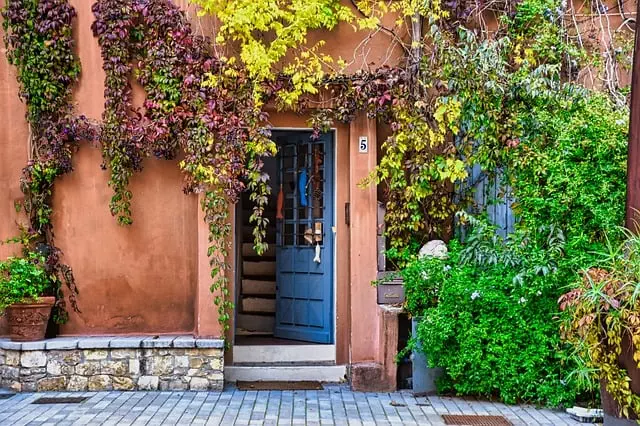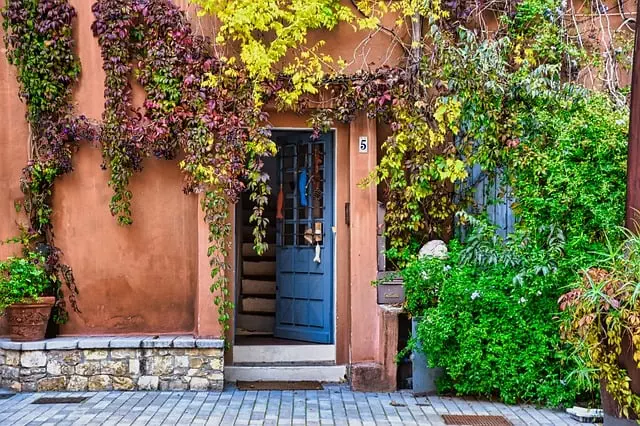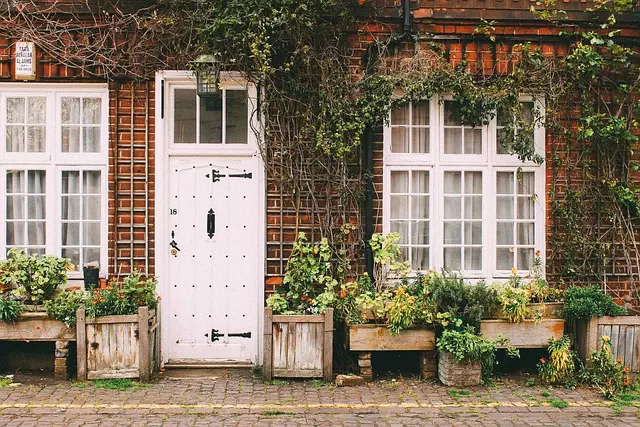House sitting is a cost-effective and culturally enriching alternative to traditional travel accommodations for snowbirds and globe-trotters. It allows individuals to live rent-free while caring for homes and pets in exchange for access to diverse living environments. This approach is particularly attractive for those seeking seasonal residences without the long-term obligations of property ownership or leasing. By joining reputable house-sitting platforms and crafting a detailed profile that highlights your skills, experience, and references, you can establish credibility within the community. Effective communication with homeowners is crucial to set clear expectations for responsibilities, which include maintaining the property's systems, addressing any issues, and following daily routines to preserve the home's ambiance. House sitting also offers financial savings, a sense of stability, and community integration, enabling you to immerse yourself in local customs and become part of the neighborhood during your extended stays. For snowbirds, this means enjoying warm or cool climates as needed without the costs associated with seasonal rentals. By being proactive, organized, and adaptable, house sitting can lead to a unique blend of travel, pet care, and property maintenance, contributing to a rich, location-independent lifestyle that is both economical and fulfilling.
Exploring the world or seeking a seasonal retreat no longer requires the trade-offs of temporary living. House sitting—a mutually beneficial arrangement for homeowners and travelers alike—has emerged as an innovative solution for ‘snowbirds’ eager to embrace a nomadic lifestyle without the constraints of property ownership. This article delves into the nuances of house sitting, offering a comprehensive guide that outlines its advantages, how to secure a position, and the essential responsibilities and considerations for those embarking on this journey. Whether you’re looking to extend your travel horizons or enjoy a change of scenery without committing long-term, house sitting could be your key to unlocking new experiences and adventures year-round.
- Understanding House Sitting: A Comprehensive Guide for Snowbirds and Travelers
- The Benefits of House Sitting for Snowbirds: Seasonal Living Without the Permanent Commitment
- How to Secure a House-Sitting Gig: Tips and Strategies for Snowbirds and Nomadic Travelers
- Maximizing Your Experience: Essential Responsibilities and Considerations for Responsible House Sitters
Understanding House Sitting: A Comprehensive Guide for Snowbirds and Travelers

House sitting offers a unique opportunity for snowbirds and travelers to experience new environments while providing a valuable service to homeowners who need someone to care for their homes during their absences. As a house sitter, your responsibilities typically include maintaining the property, caring for pets or plants, and ensuring the home remains secure. This arrangement can be particularly advantageous for snowbirds seeking seasonal housing solutions; it allows them to stay in desirable locations without the commitment of renting or owning property. For travelers, house sitting can enable exploration of new cultures and environments on a long-term basis, as opposed to the brief immersion offered by traditional tourism.
To engage in house sitting successfully, it’s crucial to be thorough in your house-sitting profile, highlighting your skills, experience, and references. Snowbirds and travelers interested in this lifestyle should focus on building a strong reputation within trusted house-sitting platforms or networks. These platforms often serve as a nexus between homeowners and potential sitters, facilitating connections based on the specific needs of each party. Additionally, it’s important to be proactive in communication with your assigned homeowner, ensuring all expectations are clear and understood to avoid any misunderstandings. House sitting can be an enriching experience, offering a sense of responsibility and community while you traverse new terrains and climates.
The Benefits of House Sitting for Snowbirds: Seasonal Living Without the Permanent Commitment

House sitting presents a flexible and cost-effective solution for snowbirds seeking seasonal living arrangements without the permanence of traditional home ownership. This practice allows individuals to live in different climates, soaking up the warmth of the south during winter months or enjoying cooler temperatures in summer, all while maintaining a residence of their own. By house sitting, snowbirds can avoid the high costs associated with seasonal rentals and avoid the commitment of purchasing a second home they may not use year-round. The caretaker role that comes with house sitting also offers peace of mind for homeowners, knowing their property is being looked after in their absence. Moreover, house sitters often enjoy the perks of living in a well-maintained home, complete with gardens that have been nurtured, pets with whom to bond, and sometimes even utilities and internet included at no extra cost. This arrangement not only saves money but also provides a sense of stability and community connection, as sitters can immerse themselves in the local culture and become part of the neighborhood, albeit temporarily. For travelers, house sitting offers an opportunity to explore new places authentically, living as a local rather than staying in transient accommodations. This lifestyle choice enables them to maintain a nomadic existence without the overheads of traditional travel expenses, allowing for longer stays and a deeper engagement with the destination’s way of life.
How to Secure a House-Sitting Gig: Tips and Strategies for Snowbirds and Nomadic Travelers

When seeking a house-sitting opportunity, especially as a snowbird or nomadic traveler, it’s crucial to prepare and strategize effectively. Firstly, start by identifying your ideal destinations and research potential homeowners who might need a sitter during the periods you plan to be there. House-sitting platforms are invaluable tools for this; create detailed profiles highlighting your skills, experience, and any relevant qualifications such as pet care or gardening. Tailor your profile to reflect the responsibilities you’re comfortable with and the lengths you’re willing to travel. Next, engage with listings actively; respond promptly to opportunities that align with your schedule and showcase your commitment by asking insightful questions about the responsibilities and expectations.
Building a robust online presence can significantly enhance your chances of securing a house-sitting gig. Maintain an active and professional profile on trusted house-sitting websites, and consider creating a personal website or blog documenting your house-sitting experiences. This not only demonstrates your dedication but also provides potential homeowners with a sense of your trustworthiness and capability. Additionally, seek references from past house-sitting assignments and include these in your profile. Networking within snowbird communities and traveler circles can also lead to offline recommendations, so don’t shy away from making connections at RV parks, travel meetups, or online forums. By combining these strategies with a proactive approach and clear communication, you’ll be well-equipped to find rewarding house-sitting opportunities as a snowbird or nomadic traveler.
Maximizing Your Experience: Essential Responsibilities and Considerations for Responsible House Sitters

When embarking on a house sitting journey for snowbirds and travelers, it’s crucial to approach the role with a blend of diligence and attentiveness. As a house sitter, your primary responsibility is to maintain the home’s safety and security while ensuring its upkeep. This involves regular checks of the property, prompt responses to any maintenance issues, and adherence to routines that mimic the homeowner’s habits to the extent possible. Prior to accepting a position, familiarize yourself with the home’s systems, from heating and cooling to alarm systems and appliances, to manage them effectively during the absence of the homeowners.
Moreover, it’s essential to establish clear communication channels with the homeowner before their departure. This includes knowing their emergency contacts, having access to important documents, and understanding their expectations for plant care, mail collection, and any pet responsibilities. House sitting is not merely about physical upkeep; it’s also about preserving the ambiance and lifestyle of the home as if the owners never left. By respecting the personal space and routines of the property, you enhance the overall experience for both the homeowner and yourself as a sitter. Engage in responsible house sitting by being proactive, organized, and flexible, ensuring that every aspect of the home is cared for with the utmost attention to detail. This approach not only provides peace of mind for the snowbirds or travelers but also enriches your own experience as a globetrotter responsible for safeguarding someone’s cherished home.
House sitting emerges as a mutually beneficial arrangement that caters to both snowbirds seeking a flexible lifestyle and travelers eager to explore new horizons without the burden of permanent residence commitments. This practice not only offers an alternative to traditional accommodations but also provides a unique opportunity for sitters to experience local life and care for homes as if their own. By following the guidelines and responsibilities outlined in this comprehensive guide, individuals can secure house-sitting opportunities with confidence, ensuring a rewarding and smooth transition into each new environment. For those considering this nomadic way of life, house sitting stands out as an attractive option that combines travel with trust and responsibility.


